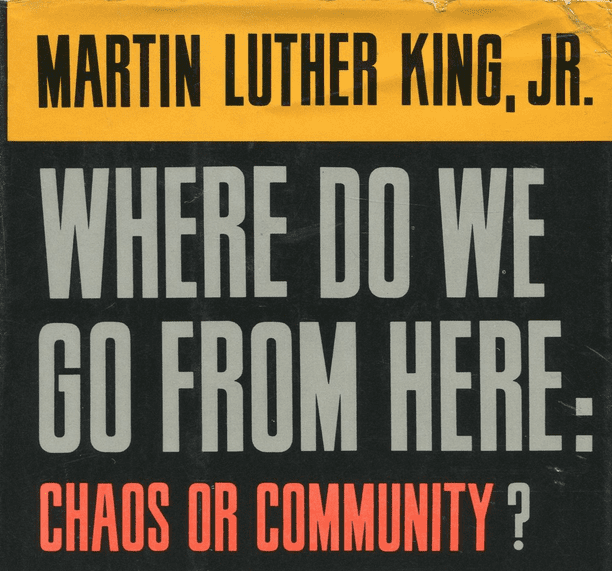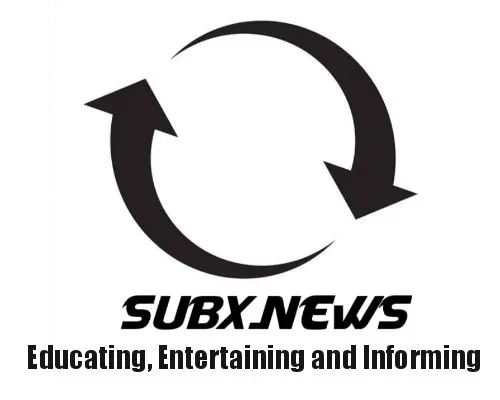
Dr Martin Luther King’s fourth and last book before his 1968 assassination … He concludes that all Americans must unite in order to fight poverty and create an equality of opportunity.
King emphasizes that he is neither a Marxist nor a doctrinaire socialist; he instead advocates for a united social movement that would act within both the Republican and Democratic parties.
Establishing a clear contrast between his own views and that of the Black Power movement, King argues that abandoning the fight for nonviolent social change and replacing it with personal militarism tinged with black separatism is both immoral and self-defeating.
He also criticizes moderate American whites for having inaccurate, unrealistic views of the ongoing plight of African-Americans, even after legal reforms undertaken under U.S. President Lyndon B. Johnson, and he asserts that radical change is still not only just but necessary.
The then ongoing Vietnam War represents, in King’s eyes, an immense waste of resources as well as a distraction from pressing domestic issues, the cost in lost lives making it all even worse.
In economic terms specifically, the author cites economic thinker Henry George’s Progress and Poverty while writing in support of broadly Georgist ideas, with King quoting George’s text that “the work which extends knowledge and increases power and enriches literature … is not the work of slaves, driven to their task either by the lash of a master or by animal necessities.”
King concludes that, rather than having a mere welfare state or a general class struggle, U.S. government measures should act more directly to benefit individuals by some kind of guaranteed income:
“I am now convinced that the simplest approach will prove to be the most effective—the solution to poverty is to abolish it directly by a now widely discussed measure: the guaranteed income.” — From Chapter V titled “Where We Are Going” p162
King assessed the rise of black nationalism and the increasing use of the slogan “Black Power” in the movement. While he praised the slogan as “a call to black people to amass the political and economic strength to achieve their legitimate goals,” he also recognized that its implied rejection of interracial coalitions and call for retaliatory violence “prevent it from having the substance and program to become the basic strategy for the civil rights movement in the days ahead” (King, 36; 44).
Condemning the advocacy of black separatism, King maintained that there would be no genuine progress for African Americans “unless the whole of American society takes a new turn toward greater economic justice” (King, 50).
Despite King’s impatience with Black Power proponents, he ended the book on an optimistic note, calling for continued faith in “mass nonviolent action and the ballot” and including his own “Program and Prospects” for black advancement (King, 129; 193–202).
Sources for Report
King Martin Luther. 1967. Where Do We Go from Here : Chaos or Community? 1st ed. New York: Harper & Row. https://archive.org/details/wheredowegofromh00king
Where Do We Go from Here: Chaos or Community?
https://en.m.wikipedia.org/wiki/Where_Do_We_Go_from_Here:_Chaos_or_Community
Stanford, The Martin Luther King, Jr. Research and Education Institute, Where Do We Go from Here: Chaos or Community?
https://kinginstitute.stanford.edu/where-do-we-go-here-chaos-or-community
King Martin Luther. 1967. Where Do We Go from Here : Chaos or Community? 1st ed. New York: Harper & Row. https://archive.org/details/wheredowegofromh00king Where Do We Go from Here: Chaos or Community? https://en.m.wikipedia.org/wiki/Where_Do_We_Go_from_Here:_Chaos_or_Community Stanford, The Martin Luther King, Jr. Research and Education Institute, Where Do We Go from Here: Chaos or Community? https://kinginstitute.stanford.edu/where-do-we-go-here-chaos-or-community
